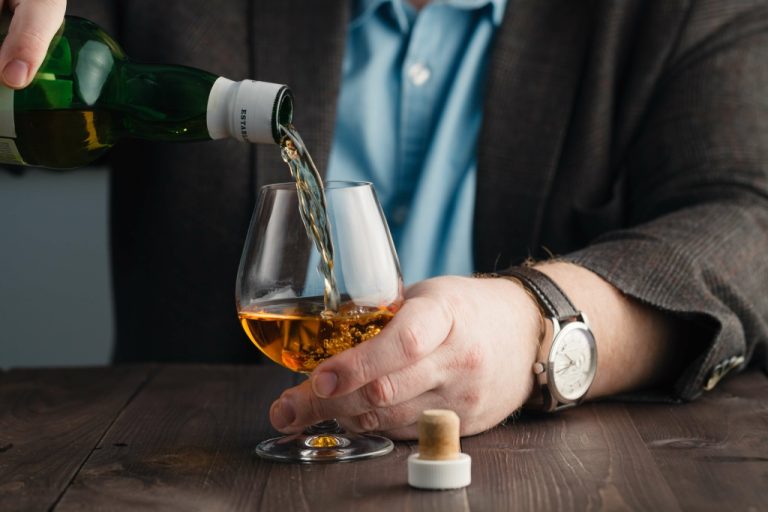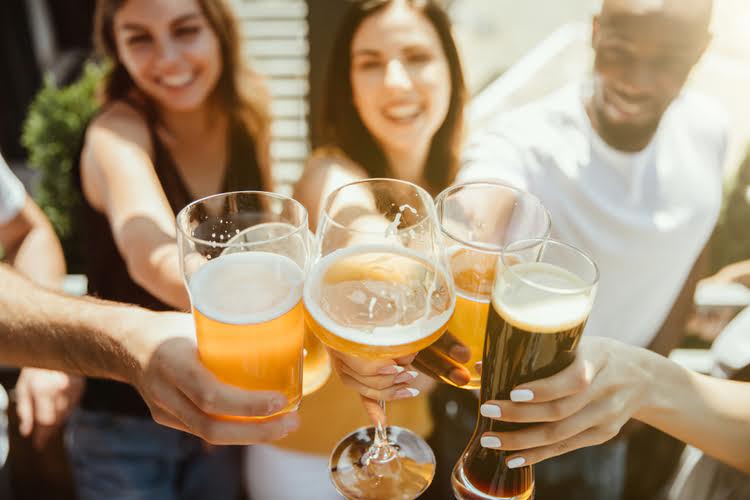Content
How well a person does depends on the amount of organ damage and whether the person can stop drinking completely. Alcohol withdrawal may range from a mild and uncomfortable disorder to a serious, life-threatening condition. Total and lifelong avoidance of alcohol (abstinence) is the best treatment for those who have gone through alcohol withdrawal. If you choose this method to come off alcohol, you must never try and take the medication together with alcohol. You have to make a clear choice to change over onto the medicines as prescribed.

But while you can’t do the hard work of overcoming addiction for your loved one, your love and support can play a crucial part in their long-term recovery. When you’re craving alcohol, there’s a tendency to remember the positive effects of drinking and forget the negatives. Remind yourself of the adverse long-term effects of heavy drinking and how it won’t really make you feel better, even in the short term. Whether you choose to tackle your alcohol addiction by going to rehab, getting therapy, or taking a self-directed treatment approach, support is essential. Recovering from alcohol addiction or abuse is much easier when you have people you can lean on for encouragement, comfort, and guidance. If your goal is to reduce your drinking, decide which days you will drink alcohol and how many drinks you will allow yourself per day.
More Tips from Ethos Recovery
Some studies report that mindfulness led to better outcomes than 12-step programs only. Milk thistle (Silybum marianum) is an herb rich in the antioxidant silymarin. It is often touted as a means of restoring liver health and protecting against liver damage from too much alcohol. Go to the emergency room or call 911 or the local emergency number if seizures, fever, severe confusion, hallucinations, or irregular heartbeats occur. You need to be a very strong and well-motivated person to set your own limits and keep to them.

Some people may be able to taper quickly and quit alcohol completely, while others may take a longer time. But making the difficult decision to cut back on drinking is much more important than the length of your alcohol taper. A medical professional can help you determine if a fast or slow taper, or quitting altogether, is appropriate based on a thorough medical assessment and evaluation of your withdrawal risk. Most people find cutting alcohol consumption in half as the best way to proceed. So if, for example, you were drinking two bottles of wine a night, this should initially be reduced to one.
How to Lose Weight and Keep It Off
Its chemical makeup signals to our kidneys to not reabsorb water inside the body like they normally do. This water then travels to the bladder where it is flushed out in the urine. For people who are concerned about their use of alcohol or drugs.
- People who have successfully tapered from alcohol before may be especially likely to benefit from this strategy.
- If you’re not sure if you’re ready to change or you’re struggling with the decision, it can help to think about the costs and benefits of each choice.
- For any and all suggestions, comments, or questions, please contact Mental Health America.
That’s because it slows down the rate at which your brain functions. If you drink too much, too often, your brain and liver get used to having alcohol in the blood. After 4 days of not drinking, you should be getting better sleep. However, if you’re a very heavy drinker, you may still be experiencing withdrawal symptoms at day 4. Typically, alcohol withdrawal symptoms happen for heavier drinkers. Alcohol withdrawal can begin within hours of ending a drinking session.
Treatment apps and online support
Problem drinking and alcoholism cost the U.S. more than 249 billion dollars per year in lost workplace productivity, healthcare, and law enforcement expenditures. While alcoholism can cause an untold level of suffering sober house for those who have it and their families, it’s not as easy as just putting down the drink and quitting cold turkey. With alcoholism, withdrawal symptoms are particularly severe and potentially dangerous.
- Drugs.com provides accurate and independent information on more than 24,000 prescription drugs, over-the-counter medicines and natural products.
- However, in about every fifth person with alcohol withdrawal, symptoms are more severe and may include hallucinosis, seizures, or even delirium.
- There are no specific tests that can be used to diagnose alcohol withdrawal.
- It may take six months to a year or more before you are able to start drinking again.
- If it happens, it often starts about 3 to 5 days after your last drink.
DTs are severe, potentially deadly, symptoms that may include a racing heart, profuse sweating, confusion, vivid hallucinations and delusions. It’s estimated that about 4-5 percent of people undergoing alcohol withdrawal experience the DTs. Those who have been heavy drinkers for many years are most at risk. Even side effects like vomiting and sweating can contribute to dangerous dehydration, which can be deadly. Because of this, detoxification from alcohol should always be done under medical supervision. The amount of time it takes to taper off of alcohol can vary greatly from person to person.
Find new meaning in life
Tapers are commonly used in an attempt to reduce the chance of experiencing withdrawal or the severity of withdrawal symptoms. Alcohol withdrawal symptoms usually start within hours after you stop drinking, peak in a day or two, and improve within five days. But in some alcoholics, withdrawal is not just unpleasant—it can be life threatening. Recovering from alcohol addiction or heavy drinking is not a quick and easy process. In general, the longer and more intense the alcohol use, the longer and more intense the treatment you’ll need. But regardless of the treatment program’s length in weeks or months, long-term follow-up care is crucial to your recovery.
Is drinking every night bad?
¹ Nightly drinking, even in moderation, can also be “bad” for you because it can increase your risk of developing excessive drinking habits. This is because the repetition of drinking alcohol every day can change your brain chemistry so that you crave alcohol and need more of it to feel satisfied.
